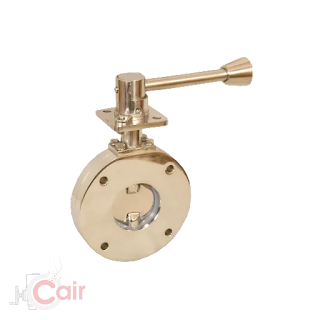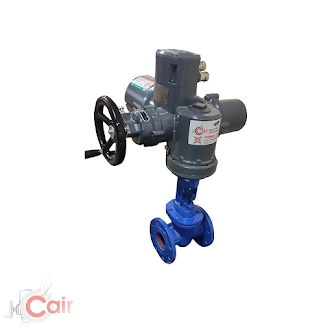Comparing UPVC Valves to Other Materials: Pros and Cons
Valve materials play a critical role in ensuring the reliability and longevity of industrial systems. Understanding the characteristics of different materials is essential for selecting the right valves for specific applications. Here's a brief overview:
Steel Alloys: Commonly used for their strength and corrosion resistance.
Bronze: Ideal for applications where corrosion is a concern; suitable for seawater environments.
Cast Iron: Known for durability and cost-effectiveness; often used in water and sewage systems.
UPVC (Unplasticized Polyvinyl Chloride): A versatile material offering excellent chemical resistance, making it an ideal choice for corrosive environments.
Stainless Steel: Preferred for its resistance to high temperatures and aggressive chemicals.
Brass: Combines corrosion resistance with ease of machining; often used in low-pressure applications.
When considering a valve for specific needs, such as in the case of a UPVC valve, it's crucial to assess the material's compatibility with the intended environment and the required performance parameters.
UPVC vs. Metal Valves: Weighing the Pros and Cons
When it comes to selecting valves for various applications, the choice between UPVC (unplasticized polyvinyl chloride) and metal valves is crucial. Both materials offer unique advantages and drawbacks, influencing their suitability for specific environments.
UPVC Valve Pros:
Corrosion-resistant: Ideal for applications where corrosion is a concern.
Lightweight: Easier to handle and install.
Cost-effective: Generally more budget-friendly than metal alternatives.
UPVC Valve Cons:
Temperature limitations: Not suitable for high-temperature applications.
Brittle: May be prone to cracking under extreme conditions.
Metal Valve Pros:
High-temperature resistance: Suitable for applications with elevated temperatures.
Robust: Generally more durable and resistant to physical stress.
Metal Valve Cons:
Corrosion susceptibility: Prone to rust in corrosive environments.
Heavier: Requires more effort for installation and maintenance.
Choosing between UPVC and metal valves ultimately depends on the specific needs of your system. For corrosion resistance and cost-effectiveness, UPVC valves are a compelling choice, particularly when the application doesn't involve high temperatures.
Chemical Resistance: A Critical Factor in Valve Material Selection
Ensuring the longevity and reliability of industrial systems relies heavily on the careful selection of valve materials, with chemical resistance standing out as a paramount consideration. The compatibility of valves with the substances they handle directly impacts performance, maintenance costs, and overall system integrity. Here are key points emphasizing the significance of chemical resistance in valve material selection:
Corrosion Prevention: Resistant materials protect valves from corrosive substances, extending their lifespan.
Process Stability: Chemical compatibility maintains valve functionality, ensuring smooth and consistent industrial processes.
Reduced Maintenance: Choosing materials resistant to harsh chemicals minimizes the need for frequent repairs and replacements.
Material Specificity: Tailoring valve materials to the chemicals in use enhances system reliability.
In this context, the versatile and corrosion-resistant nature of UPVC valves makes them a compelling choice, promoting the seamless operation of industrial processes while withstanding the challenges posed by various chemicals.
Durability Matters: Assessing the Longevity of UPVC and Other Materials
In the realm of construction and industrial applications, the longevity of materials is paramount. Understanding the durability of various options, such as UPVC (Unplasticized Polyvinyl Chloride), becomes crucial for informed decision-making. Here's a quick overview:
UPVC's Resilience: UPVC stands out for its exceptional resilience against environmental elements, ensuring prolonged use without deterioration.
Corrosion Resistance: Unlike metals, UPVC doesn't corrode, making it ideal for applications where exposure to moisture or harsh chemicals is a concern.
Temperature Stability: UPVC maintains structural integrity across a broad temperature range, providing stability in diverse environments.
Low Maintenance: Its resistance to rot, rust, and decay contributes to minimal maintenance requirements over time.
When considering industrial components like valves, the choice of UPVC material becomes crucial for sustained performance. For instance, a well-designed and robust UPVC valve ensures lasting functionality in various applications. Prioritizing durability safeguards investments and promotes operational efficiency, making UPVC a reliable choice in the long run.
Cost Considerations: UPVC vs. Traditional Valve Materials
When selecting valves for industrial applications, cost is a critical factor that influences decision-making. The choice between UPVC (Unplasticized Polyvinyl Chloride) and traditional valve materials involves several considerations:
Material Cost: UPVC valves generally have a lower material cost compared to traditional materials like metal alloys.
Installation Costs: UPVC valves are lightweight and easier to install, leading to potential labor cost savings.
Maintenance Expenses: Traditional valves may require more frequent maintenance and replacement, increasing long-term costs.
Corrosion Resistance: UPVC is inherently corrosion-resistant, minimizing the need for protective coatings and reducing ongoing expenses.
Durability: While traditional materials may offer high strength, UPVC valves can withstand various chemicals and environmental conditions, potentially extending their lifespan.
In the realm of cost-effectiveness, UPVC valves emerge as a compelling option, providing a balance between affordability and performance in industrial applications. Consider the long-term savings and operational benefits when opting for UPVC valves in your system.
Weight and Portability: Exploring the Differences Between UPVC and Alternatives
When considering materials for construction, weight and portability are crucial factors. Understanding the distinctions between UPVC (Unplasticized Polyvinyl Chloride) and its alternatives is essential. Here's a brief exploration:
UPVC:
Lightweight: UPVC is notably lighter than traditional materials like metal or wood.
Easy Handling: Its low weight makes UPVC easy to handle during transportation and installation.
Corrosion Resistance: Unlike metals, UPVC doesn't corrode, ensuring long-term durability.
Alternatives:
Heavier Options: Some alternatives, such as metal, can be significantly heavier.
Potential Corrosion: Metals may be susceptible to corrosion over time, impacting longevity.
Varied Material Choices: Other alternatives offer diverse material options with varying weights.
Considering these factors, the choice between UPVC and alternatives depends on specific project requirements. For applications like plumbing, mentioning the keyword "UPVC valve" highlights the material's relevance in the context of lightweight and corrosion-resistant solutions.




Comments
Post a Comment